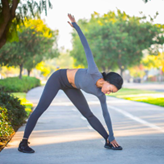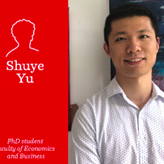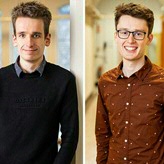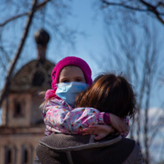Corona blogs
Corona pandemic increases socio-economic differences in sport and exercise; likely to have lasting impact

It was already known that people with a low level of education exercise less often than those with a high level of education. This also applies to differences between income groups. The new research, done using data from the large-scale Lifelines corona study, shows that the corona pandemic has significantly increased these socio-economic differences in exercise. It is likely that this effect will not be temporary, but will have lasting consequences after the pandemic. Read more (Dutch).
More than a temporary measure: home-based work and its positive impact on us

Due to the COVID-19 crisis, home-based work has been a norm for many companies and jobs. Employees from some tech giants, including Facebook and Twitter, are even entitled to working from home permanently after this pandemic. This fact seems to imply that home-based work not only is a temporary measure for the current pandemic but also will be a common working arrangement in the future. Read the blog by Shuye Yu.
Hybrid working - will it benefit the office workers at the expense of the home workers?
29 June - Most organisations seem to be looking for a hybrid form of working. This combines the advantages of working from home with those of the office. This sounds like a fine, self-evident win-win situation, and perhaps it can be. But there are some dangers lurking, especially for managers. Apart from all sorts of complicated coordination and technology issues, these are mainly related to their own behaviour.
Read the (Dutch) blog by Janka Stoker
Living with COVID: Lessons from applied history

10 June - ‘Funfair, or no funfair?’ that was the question in cholera year 1849. The illustration shows the joys of the yearly event on the left, and the devastating consequences of celebrating during a cholera epidemic on the right. The central warning was, of course, that the fair with its exuberant dancing (‘Hosse! Hosse! Hosse!’), would eventually lead to a dance macabre and an early grave.
After nearly one and a half years of COVID-19, the image is uncannily familiar. As is the reference to dancing as the ultimate representation of the dangers and challenges of epidemics.
Read more
Interview with developers of the Corona Barometer

17 May - Since the Lifelines Corona study started last year, 20 questionnaires have been completed. To make all these data transparent, the Corona Barometer has been developed. It provides insight into the results of the study and shows how the crisis is developing. Henry Wiersma and Robert Warmerdam both work at the UMCG as scientific programmers for the corona research and the Barometer. "With this, we show that science can also contribute very directly to current issues."
Read more (Dutch)
Will the lockdowns cause baby booms? A demographer's view on the pandemic.

12 May - The coronavirus that is currently pestering our precious world is first and foremost a health issue. Researchers in the field of medical sciences have thus been entrusted with finding a vaccine against the virus and mitigate further incidence of disease. But what can be learnt about this pandemic from researchers in other fields of science? In this piece, Jonne explores what the field of Demography can tell us about the pandemic thus far and speculates what its effects may be for future studies of social sciences.
Read more
Earlier blogs
Corporate - podcast
11 March 2021 - In Science podcast: Alex Friedrich - Catching up on COVID-19
Economics and Business
04 March 2021 - The cost of the COVID19 pandemic
23 March 2021 - How to spend your vacation during Covid19?
22 April 2021 - FEB Researchers want to help solve COVID-19 problems in healthcare
Law
18 February 2021 - Mini lecture on emergency law (Youtube - Dutch)
Spatial Sciences
13 October 2020 - What governance do we need to reduce disaster risk and enhance our democracies amid COVID-19 crisis?
| Last modified: | 02 March 2023 12.21 p.m. |
